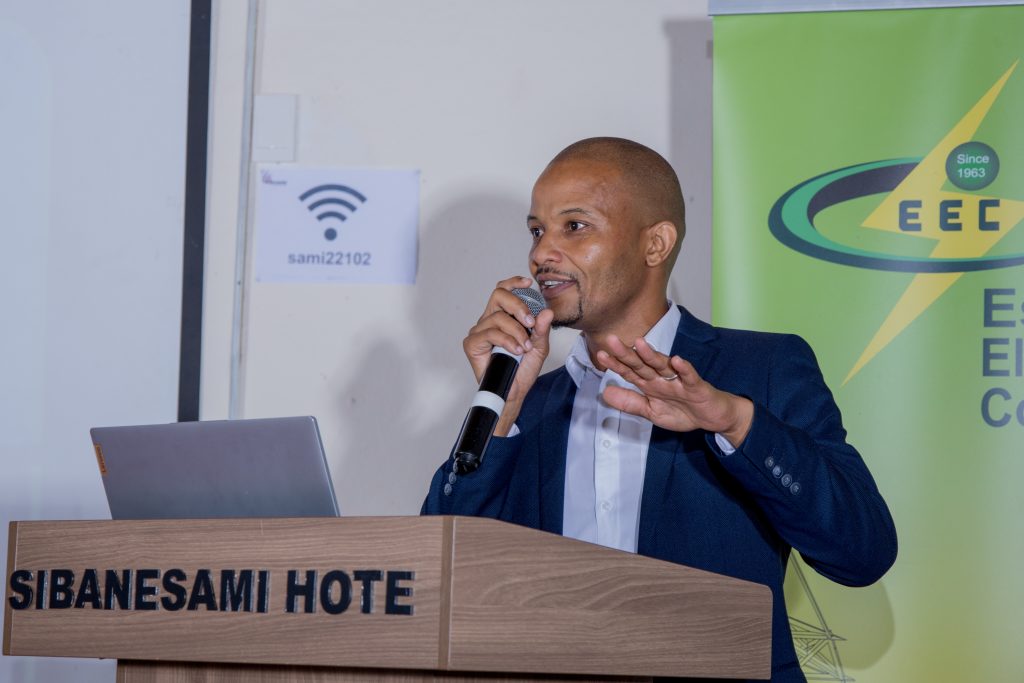
Eswatini is ramping up its sustainability efforts with an ambitious goal for Earth Hour 2025—saving 25 megawatts (MW) of electricity during the nationwide switch-off event on March 22, 2025.
This initiative, spearheaded by the Eswatini Electricity Company (EEC), is a key part of the country’s broader efforts to promote energy efficiency, reduce carbon emissions, and address climate change.
The campaign was officially launched at Sibane Sami Hotel on February 20, where key stakeholders, including government officials, business leaders, and international partners, gathered to discuss Eswatini’s sustainable energy transition under the theme “Advancing Climate Justice: Sustainable Energy Transitions for Developing Nations – The Eswatini Experience.”
Speaking during the launch, EEC’s Themba Thwala highlighted the broader significance of Earth Hour beyond simply turning off lights.
“The Earth Hour is about celebrating nature and what it provides us. It’s a moment to spark a global conversation, bring attention to climate challenges, and inspire national action,” he stated.
Thwala underscored that climate change is not a distant threat but an urgent crisis affecting daily life, from unpredictable weather patterns to air pollution-related health concerns.
He challenged attendees to consider the kind of world they want to live in and urged them to make choices today that will shape a sustainable future.
“It’s not just about what happens on March 22; it’s about starting a movement that changes how we live,” he emphasized.
Thwala noted that this target is achievable given past successes. In 2024, the target was 20MW, but the country managed to save 38.4MW. That was nearly double the goal. “This year, we want to build on that momentum,” he said.
To put this into perspective, Thwala explained that the saved power could supply electricity to approximately 16,000 homesteads or sustain an average household for nearly 25 years.
The Earth Hour campaign extends beyond the symbolic lights-off event. A series of activities have been lined up to engage communities and promote sustainability, including:
- Clean-up campaigns across five major towns, including Nhlangano, Manzini, Pigg’s Peak, Mbabane, and Matsapha, running until March 15.
- School awareness campaigns from February 24 to March 21, 2025, targeting young learners to instill long-term environmental consciousness.
- The official Earth Hour commemoration at House on Fire, where 3,000 participants are expected to gather for interactive sustainability exhibitions, a formal conference, and the symbolic switch-off moment.
EEC Managing Director, Ernest Mkhonta, reaffirmed the company’s commitment to renewable energy and sustainability. Addressing the audience, Mkhonta highlighted Eswatini’s strides in clean energy generation.
“As a country, we are making progress with our energy mix, incorporating solar, hydropower, and biofuels. This is something worth celebrating as we move towards a net-zero goal by 2050,” he said.
Mkhonta also acknowledged the support of stakeholders, including government ministries, development partners, and the private sector, in advancing Eswatini’s energy sustainability agenda.
“Our focus is not only on commemorating Earth Hour but on driving long-term impact. The energy transition must be inclusive, and initiatives like this help ensure no one is left behind in the shift to cleaner power sources,” he added.
The Minister of Natural Resources and Energy, Prince Lonkhokhela Dlamini, who was represented by the Principal Secretary in the Ministry, Lindiwe Mbingo, delivered the keynote address, underscoring the urgency of climate action and Eswatini’s commitment to sustainability.


In his remarks, Prince Lonkhokhela stated that Earth Hour is more than just a symbolic act—it is a global movement addressing critical environmental challenges, including climate change, biodiversity loss, and pollution.
He commended EEC and other Earth Hour partners for their unwavering commitment to sustainability, highlighting EEC’s recent recognition as the Green Parastatal of the Year 2024/2025 at the Temvelo Awards.
“Nature is our life support system, and it is our duty to protect and preserve it,” he emphasized, calling on more businesses, organizations, and individuals to actively participate in environmental conservation.
Addressing potential concerns, Thwala clarified that the Earth Hour initiative does not compromise public safety.
“We are not asking people to turn off security lights or essential appliances that ensure safety. The goal is to eliminate unnecessary energy consumption while maintaining security,” he assured.
